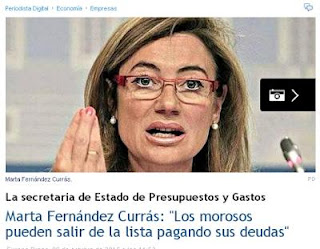
Tocqueville
Si el hombre tuviera la necesidad de probarse a sí mismo todas las verdades de que se sirve diariamente es indudable que no acabaría nunca; se entretendría en demostraciones previas, sin adelantar un paso. Como no tiene tiempo, dada la brevedad de la vida, ni facultades, a causa de los límites de su inteligencia, para obrar de este modo se ve obligado a considerar como ciertos mil hechos y opiniones que no ha tenido ni el tiempo ni el poder de examinar por sí mismo, pero que otros más capacitados hallaron o han adoptado la multitud. Sobre esta primera base levanta el hombre el edificio de sus ideas propias. Pero no es llevado por su voluntad a obrar así, sino por la inflexible ley de su condición. Tocqueville, La Democracia en America II, Alianza Editorial,
La democracia debe tener sistemas de control para evitar la pevaricción y mal uso del poder que se le ha otorgado por parte de los ciudadanos.
Nuestro conocimiento es algo mucho más complejo que una serie de eslabones que van uniéndose en un cadena, ya que cada nuevo eslabón puede cambiar la estructura de todos los eslabones anteriores, o puede que solo una parte de esa cadena sea la que cambie. Así ocurre con la idea de democracia. La cadena que nos han presentado como democracia es falsa. Y lo podemos afirmar porque ya no no está corrompido un eslabón intermedio sino la cadena entera.
Este hecho resulta tan grave que iremos demostrando uno a uno de ellos. Para que se dé una verdadera democracia es necesario que el primer eslabón de la cadena sea la representación. Representar significa estar presente por alguien en algún acto y tomar las decisiones o ejecutar las acciones que la persona representada nos haya encargado.
Cuando, por ejemplo, damos unos poderes ante notario a un hermano, o a un amigo de confianza para recoger, digamos, una herencia porque nosotros estamos, por ejemplo, en EE. UU. y no podemos estar presentes en el acto de la lectura del testamento en España, el notario se encarga muy mucho de describir en el documento los poderes que tiene el representante. Eso quiere decir que quien te sustituye puede o no aceptar la herencia en nuestro nombre según nuestros deseos; pero lo que no puede hacer dicho representante es comprarse una casa PARA EL MISMO con nuestros poderes porque no le hemos facultado para ello. O peor todavía, peor sería que cogiera la herencia y se la diese a una ONG mafiosa dedicada al tráfico de personas, o a cualquiera que pasase por la calle.
Tu representante político tampoco puede hccer lo que le da la gana. La democracia debe tener sistemas de control para evitar la pevaricción y mal uso del poder que se le ha otorgado por parte de los ciudadanos. Ahora bien, solo un poder puede oponerse a otro poder: de ahí la importancia de nuestra ausente separación de poderes. En estos momentos, no existe nada que Pablo Iglesias y Sánchez odien más que la separación real de poderes. Por eso hacen lo que les da la gana cuando les da la gana.

